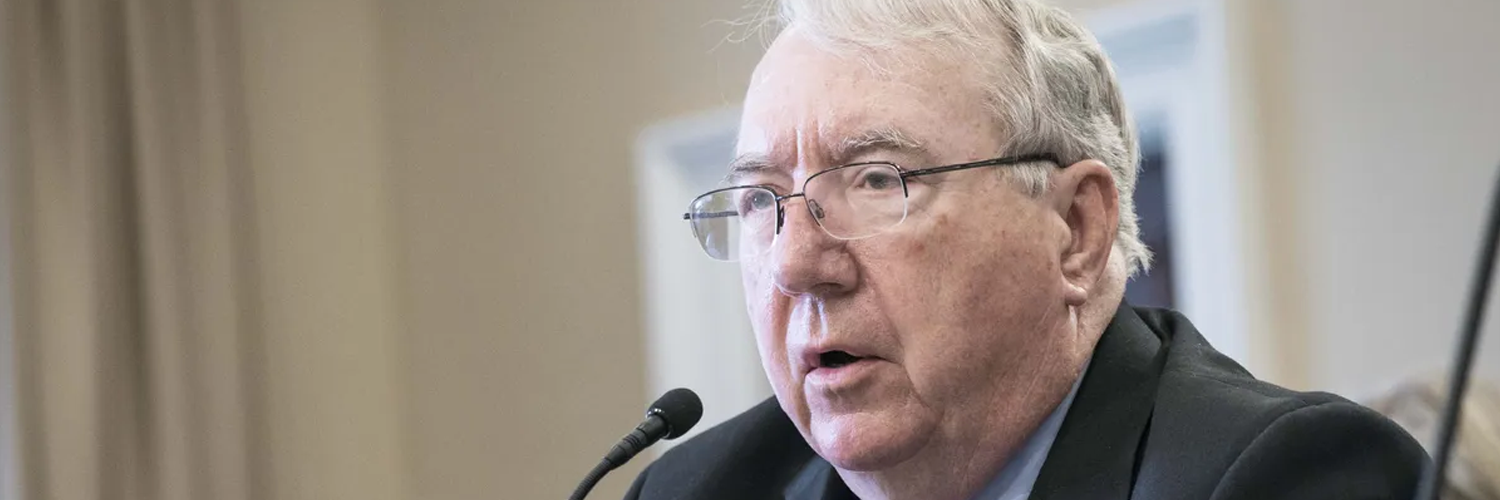Arguably the first major controversy of President Joe Biden’s administration was the unceremonious inauguration day firing of Peter Robb, the general counsel of the National Labor Relations Board (NLRB) appointed by President Trump, 10 months before the expiration of his term.
Internal NLRB emails recently obtained by the Freedom Foundation under the Freedom of Information Act provide additional insights into the unprecedented termination of the Board’s top enforcement official prior to the expiration of his term of office.
The National Labor Relations Act (NLRA) specifies that the NLRB general counsel, “…shall be appointed by the President, by and with the advice and consent of the Senate, for a term of four years.”
The statute does not envision or discuss the removal of the general counsel, and no previous president has replaced the NLRB general counsel prior to the expiration of their term.
However, at 12:23 p.m. on inauguration day, literally as President Biden was delivering remarks to the nation about his intent to foster renewed unity, his staff emailed Robb a demand that he resign or face termination by 5 p.m.
Robb “respectfully decline[d]” and was terminated. The following day, Robb’s deputy general counsel, Alice Stocks, received a similar ultimatum and was terminated following her refusal to resign.
Days later, Biden named Peter Ohr, the regional director of the NLRB’s Region 13 office in Chicago, as acting general counsel. Since his appointment, Ohr has moved aggressively to rescind guidance memoranda and other policy positions adopted by his predecessor, many of which attempted to limit union coercion of employees.
Challenges to the legality of Robb’s firing and Ohr’s subsequent reversals of NLRB guidance have already been raised in litigation, though it will likely take some time for federal courts to resolve the matter.
Jennifer Abruzzo’s role on the Biden transition team
Despite the suddenness of Robb’s termination, discussions about replacing Robb mid-term had been underway at least several months, with at least the Communications Workers of America (CWA) reportedly advocating for Robb’s removal shortly after Biden’s election.
Biden’s nominee to replace Robb, Jennifer Abruzzo, is both a senior attorney for the CWA and was a member of the Biden agency review team (ART) charged with overseeing the Trump-Biden transition at the NLRB, potentially placing her in the position of having helped illegally terminate the person whose position she now seeks to fill.
The U.S. Senate Committee on Health, Labor, Education and Pensions (HELP) held a hearing on Abruzzo’s nomination on April 29. During the hearing, ranking minority member Sen. Richard Burr (R-NC) pressed Abruzzo about her role in Robb’s termination.
Abruzzo attempted to deflect, stating she was “asked to volunteer on the Department of Labor agency review team during the transition” and was “one member of about 25.”
Under questioning, she eventually appeared to acknowledge recommending, or at least agreeing with a recommendation regarding, Robb’s termination to the incoming administration.
The website for the Biden transition listed 23 members of the Department of Labor ART, including Abruzzo, though the website noted that the ART also had jurisdiction over eight other labor-related government agencies, including the NLRB.
However, according to a Dec. 4, 2020, email from Beth Tursell, who served as the NLRB’s designated point-of-contact for the Biden transition team, to Ohr, Biden’s NLRB ART consisted only of two people: Abruzzo and Seema Nanda. A Feb. 2, 2021, email from Corina Cortez in the White House to Ohr suggests that a third person – Lynn Rhinehart, senior fellow at the Economic Policy Institute and former AFL-CIO general counsel – may have been on the NLRB transition team as well.
This suggests that the 23 members of the Department of Labor ART were likely divvied up among the nine separate agencies in the “Department of Labor” ART, instead of all 23 engaging with all nine agencies as Abruzzo implied during her confirmation hearing.
Advance knowledge of Robb’s termination
On Dec. 28, 2020, San Francisco attorney David A. Rosenfeld of Weinberg, Roger & Rosenfeld — a private firm which describes itself as “part of the labor movement” — emailed a brief letter to all NLRB regional directors, including Ohr. The letter read simply:
“Dear Regional Directors: Will you join me at Peter Robb’s office to help him move out on January 20, 2021? Let me know. We can do it in person or remotely. He will be able to find work at some management law firm so he won’t have to seek any public assistance.”
Despite its sarcastic tone, the missive nonetheless suggests Rosenfeld — who was neither part of the NLRB nor the Biden transition team — possessed foreknowledge of Robb’s fate at least a month in advance.
Perhaps this advanced notice happened to leak to Rosenfeld specifically, or perhaps the Biden transition team, including Abruzzo, promoted the incoming administration’s intention to terminate Robb broadly to unions and their allies well in advance.
Retired regional directors opposed Robb’s termination
On Jan. 26, 2021, Allen Binstock, retired director of NLRB Region 8, emailed a note to Ohr congratulating him on his appointment to acting general counsel and trashing Robb:
“Congratulations on your appointment as Acting GC. For my money, I’d love to see you in that position permanently. It is such sweet justice to see Robb kicked out on his ass and you replace him. As low as I’ve felt these past few months, when I heard the news about your interim appointment, I got up and did a happy dance! Most of the retired RDs were opposed to Biden axing Robb, but not me. I know it sets a new precedent which the others were averse to seeing. But this situation was different in my mind because, as we both know, Robb did what he could to hollow out the Agency and ruin it. It was only because of the brave resistance of people like you that he did not do more damage. So I celebrated when Robb was shown the door. But now I’m elated that you are in charge of the GC’s office.”
Binstock’s note is extraordinary for several reasons. First, it acknowledges that many with experience in NLRB leadership opposed the precedent that terminating a general counsel mid-term would set.
But it is also a stunning acknowledgement of what some have labeled the “deep state” — entrenched, career bureaucrats who work to thwart or “resist” the agenda of political appointees of duly-elected American presidents.
Ohr and NLRB employees’ pro-union view of the agency’s mission
While none expressed themselves quite as colorfully as Binstock, communications between Ohr and other NLRB employees show that many view their role as advancing a particular view of the agency’s mission, centered around promoting unionization, which they believe conflicted with Robb’s priorities and policies.
The day after his inauguration, the White House distributed an unlisted YouTube video featuring President Biden to federal employees in which he told them, “You’re the ones running the show.”
Ohr forwarded the video to his Region 13 staff, describing the message as “inspirational and reaffirming.” New York NLRB attorney Colleen Breslin forwarded the message to other NLRB officials, including Ohr, noting how she was “looking forward to new and beautiful things.” The Region 13 NLRB director, Mori Rubin, replied that she found the message “uplifting and inspiring.”
On Jan. 25, NLRB chairperson Lauren McFerran emailed NLRB staff the announcement that President Biden had appointed Ohr as acting general counsel. Later in the day, Ohr followed up with an all-staff email in which he described the NLRB as “my home” and “what defines me” and promised to “make significant differences” to “fully effectuate the Act.”
Emails between NLRB employees and Ohr explain a great deal about how they view the agency and their distaste for the perspective and policies of Ohr’s predecessor.
- A senior NLRB attorney emailed congratulations to Ohr, describing his appointment as “such a REFRESHING change!!!”
- In an email, an assistant general counsel wrote Ohr, “Good for you, good for us, good for the country!”
- A deputy regional attorney in Region 9 wrote, “What you heard out in the field upon your appointment was a huge sigh of relief and hope from us.”
- In an email to Ohr, a field examiner supervisor in Chicago thanked him for a Jan. 26 meeting between him and NLRB employees in her office, writing that Ohr embodies “the true ethos of the Agency” and that his remarks produced “a spark of hope in my colleagues’ faces. People need to believe that their work matters and their voices will be heard, and you clearly communicated that message.”
- A field attorney thanked Ohr for his “nuanced sensitivity to questions of privilege and access” and for “imbuing our work with more meaning, and for making so many feel seen.”
- A regional attorney wrote that Ohr’s appointment represented “some justice.”
- A field attorney described Ohr’s appointment as a “breath of fresh air.”
- Another NLRB employee wrote that Ohr’s message gave her “chills.”
- Another wrote that they were “…[s]o happy and excited for you and all the many good things that you and our Agency will be able to accomplish and contribute for the betterment of the working people and for the recovery of our country.”
- In email replies to the various congratulatory notes, Ohr wrote that he intended to “make history” and “fulfill the mission of the Act and bring back pride to the Agency.”
None of the employees expressed an objection to Robb as a person or manager, but clearly they opposed his views, and those of the Trump administration, on policy.
Republican officials generally attempt to balance the competing interests of unions, employees and businesses when managing the NLRB and applying the NLRA. However, to many career employees and former union officials who staff the NLRB, the purpose of the Act is to promote unionization and collective bargaining.
For many, as these emails show, this understanding is central to their personal identity and sense of meaning as NLRB employees. It’s also a view shared and repeated by President Biden himself.
In a two-minute video released by the White House during the campaign to unionize Amazon workers in Bessemer, Ala., Biden stated, “The National Labor Relations Act didn’t just say that unions are allowed to exist, it said that we should encourage unions.”
As Sean Higgins recently explained in Reason, this is a misreading both of the law’s history and text, but the view nevertheless appears to enjoy wide acceptance among NLRB staff. It also creates significant friction between Republican political appointees tasked with running the NLRB and the career staff who view their role not as implementing the policy agenda of the public as expressed through the elected executive, but serving the purported higher purpose of promoting unions, leading to the kinds of “resistance” movements among career federal bureaucrats that surfaced during the Trump administration.
With former union officials like Abruzzo likely to be handed the reins at the NLRB soon, the next four years all but assure a continuation of the dramatically pro-union shift at the agency. And as shown by Ohr’s quick moves to rescind Robb’s guidance memos and policies — which Glenn Taubman of the National Right to Work Legal Defense Foundation describes as “a record number of seismic policy shifts” — often this emphasis will come at the expense of employees’ freedom of choice.
5/19/21: This article has been updated to note the possible participation of Lynn Rhinehart on the NLRB transition team.











